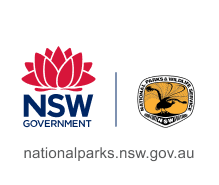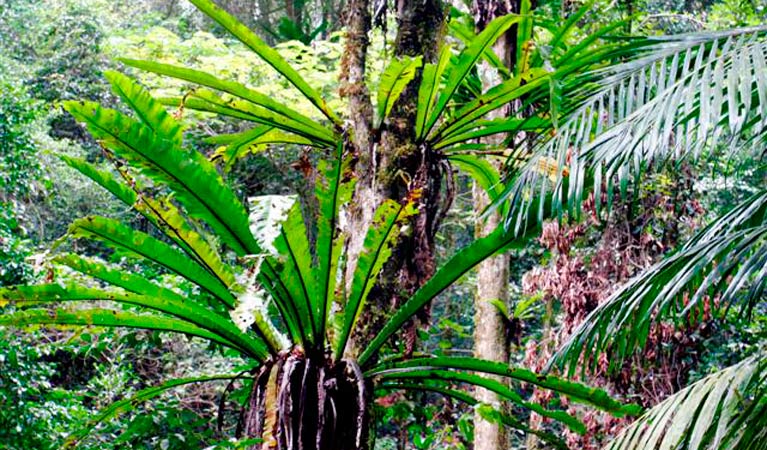Culmaran Valley track
Richmond Range National Park
Overview
Culmaran Valley track, near Kyogle, takes you through diverse World Heritage-listed rainforest ecosystems and offers scenic views from its lookouts.
- Where
- Richmond Range National Park in North Coast
- Distance
- 2.5km loop
- Time suggested
- 1hr - 1hr 30min
- Grade
- Grade 3
- What to
bring - Drinking water, hat, sunscreen
- Please note
- Remember to take your binoculars if you want to birdwatch.
Starting at Cambridge Plateau picnic area, Culmaran Valley track descends steeply through towering tree trunks with broad leaves to a bridge over Culmaran Creek. This medium difficulty walk then climbs and skirts around the crest of the valley through world heritage subtropical rainforest, where 200 identified plant varieties dwell.
The scents, hues and scenery then change into the wonderful, moist, painter’s palette of subtropical rainforest; jumbled tree roots, giant vines looping across water streaked tree branches and enormous thriving rainforest trees including strangler figs and yellow carabeens.
Map

Map legend
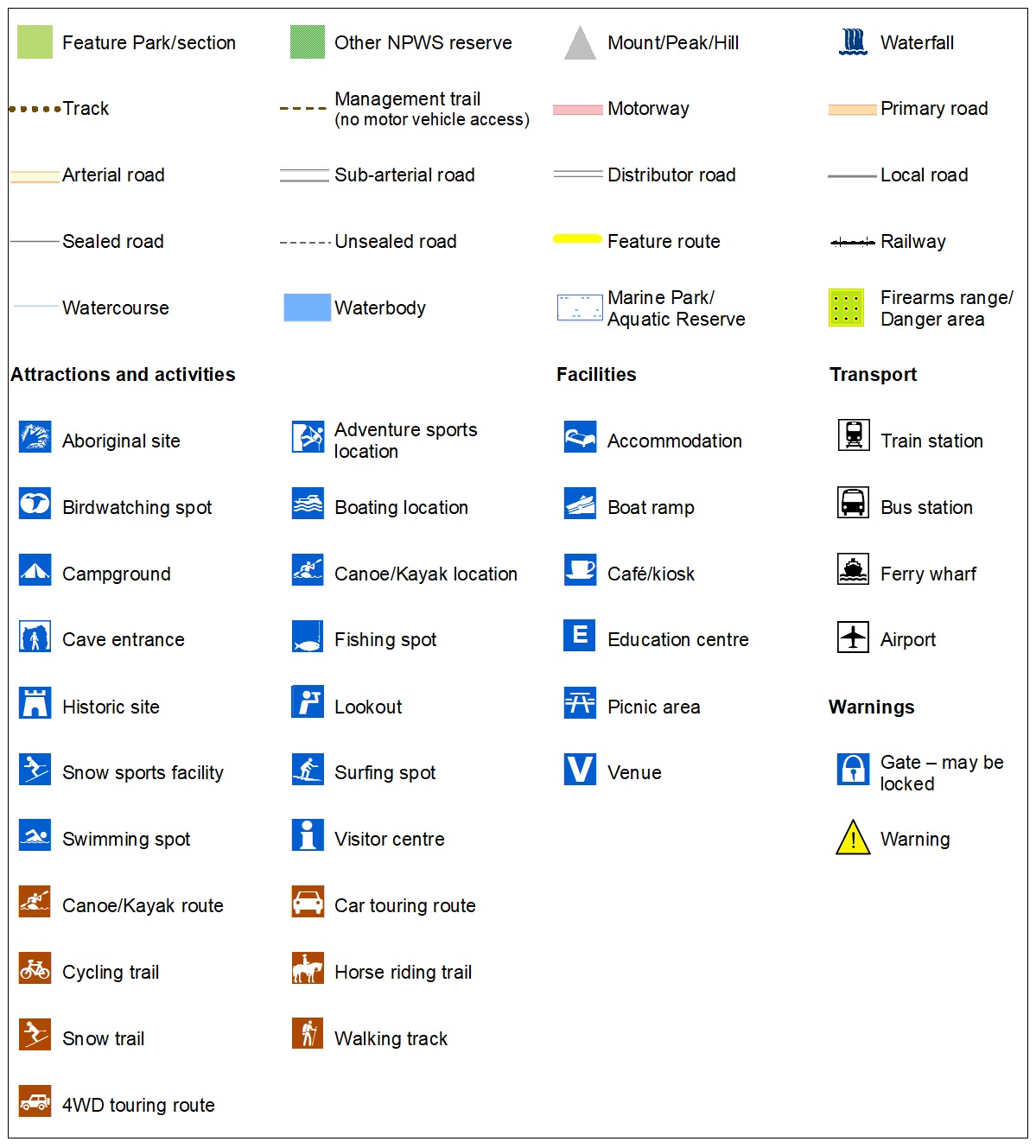
Local alerts
For the latest updates on fires, closures and other alerts in this area, see https://uat.nswparks.cloud/things-to-do/walking-tracks/culmaran-valley-track/local-alerts
General enquiries
- National Parks Contact Centre
- 7am to 7pm daily
- 1300 072 757 (13000 PARKS) for the cost of a local call within Australia excluding mobiles
- parks.info@environment.nsw.gov.au
Park info
- in Richmond Range National Park in the North Coast region
Richmond Range National Park is always open but may have to close at times due to poor weather or fire danger.
Visitor info
All the practical information you need to know about Culmaran Valley track.
Maps and downloads
Learn more
Culmaran Valley track is in Richmond Range National Park. Here are just some of the reasons why this park is special:
All creatures, great and small
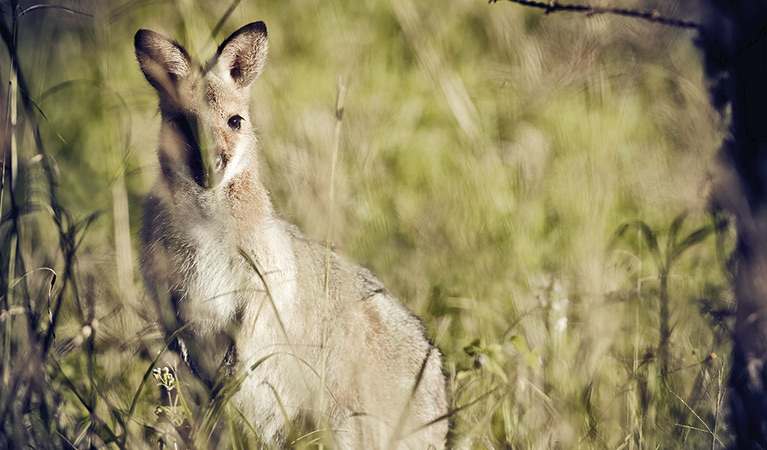
It's a great pleasure to see the golden-tipped bat, listed as a vulnerable and threatened species in NSW, thrive in this environment. Other rare mammal species include Parma wallabies, koalas, spotted-tailed quoll and long-nosed potoroos. Birds listed as vulnerable in this park include rose-crowned fruit-dove and wompoo fruit-dove. The fruit dove's deep, repeated ‘whoop whoop’ call is often heard high up in the trees of thick forest. Brush-turkeys are occasionally seen and if you’re lucky, you’ll even spot the yellow and black flash of a male regent bowerbird as it flitters overhead.
- Cambridge Plateau picnic area Cambridge Plateau picnic area, close to Casino and Kyogle, is an idyllic spot for picnicking that’s also great for birdwatching.
- Culmaran loop trail Culmaran loop trail is an easy walk on the rainforest edge, especially suited to families. Admire the exotic plants found in the drier parts of Richmond Range.
- Culmaran Valley track Culmaran Valley track, near Kyogle, takes you through diverse World Heritage-listed rainforest ecosystems and offers scenic views from its lookouts.
World class listing
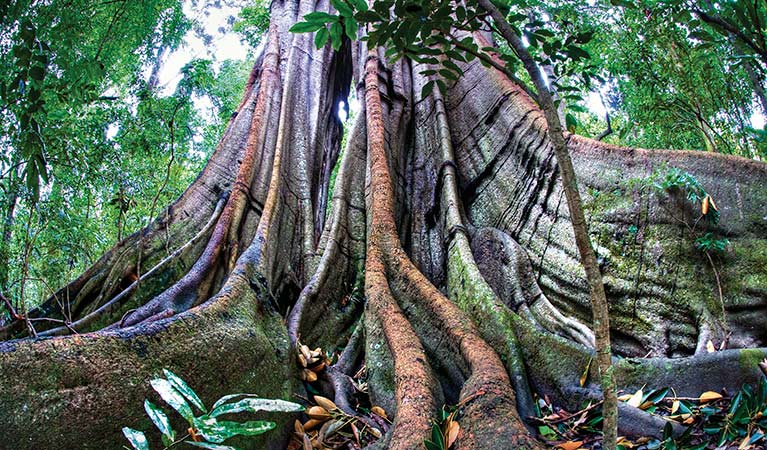
Rainforests are the earth’s oldest living ecosystems, and the Cambridge Plateau and Bungdoozle area rainforests within the park are part of Australia’s World Heritage Area. They’re a highly significant habitat for a medley of vulnerable and threatened species, which are able to live and breed freely among the protective wet rainforest vegetation.
- Cambridge Plateau scenic drive From Casino, Cambridge Plateau scenic drive is a comfortable drive along the ridge through scenic rainforest, offering fantastic views.
Yesterday is today
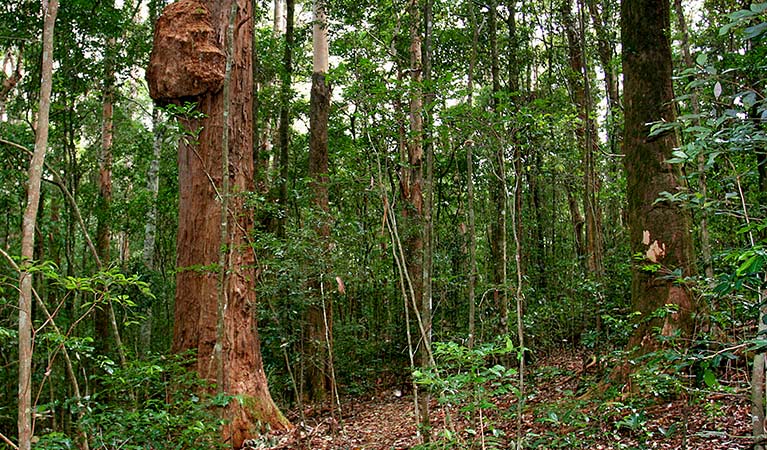
This landscape lies within traditional country of the Githabul People. Forests within the park have provided Aboriginal people with food, medicine, shelter and materials for tools and weapons for thousands of years. A landmark agreement involving co-management of the park with the local Githabul People brings ongoing benefits to the community.
Plants and animals protected in this park
Animals
-

Albert's lyrebird (Menura alberti)
The Albert’s lyrebird is much rarer than the superb lyrebird. Distinguished by its richer brown plumage and less elaborate tail feathers, it’s protected as a threatened species in NSW.
-

Koala (Phascolarctos cinereus)
One of the most renowned Australian animals, the tree-dwelling marsupial koala can be found in gum tree forests and woodlands across eastern NSW, Victoria and Queensland, as well as in isolated regions in South Australia. With a vice-like grip, this perhaps most iconic but endangered Australian animal lives in tall eucalypts within a home range of several hectares.
